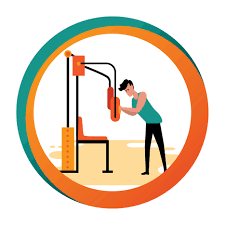Exercise When Sick: Should You Do It?
I remember back when I was younger that sick days didn’t really mean that much. We all had the really sick days, and those days I spent in bed with a hearty bowl of mom’s hot chicken soup. But on days when I had a cold, or even a fever, it didn’t matter much and I’d spend the day running and playing with my friends.
As we get older, and smarter, it’s now a different story. And something that got me so curious the last time I got sick was should I exercise when sick? I felt that I could, but should I?
So with that I did ask my doctor, and also my trainer. Along with some asking around in exercise forums on the web, here’s what I gathered.
Should you exercise when feeling sick?
The answer here is it depends. The most reliable thing to do is use what my doctor calls the “neck check”. This means that if your symptoms or whatever you feel is making you sick is above the neck, then it is okay to do so.
So this means things like a cold, sore throat, runny nose or sneezing will be fine.
However, if you do have a fever or your symptoms are below the neck, then don’t exercise. It is never a good idea to exercise if you have a fever because working out increases our body temperature. And when we do have a fever, the temperature is already up there, usually 101 degrees or more. Doing so will only make us sicker.
Also, symptoms below the neck, which include the flu, overall feeling of fatigue, stomach virus or other aches and pains are a sign of staying away from the gym and getting more rest or time in bed. In these situations, our bodies need to recover and let our immune system help get us back to feeling better.
The one real “no-no” I was told was not to exercise when you have any type of respiratory infection, or something that makes it difficult to breath. This can cause more complications if you workout where we need to breathe in more oxygen.
What exercises can you do?
Okay, so what if we do pass the “neck check” what then? Can we go ahead and do our regular workouts or should we make any modifications?
The answers I got here are a bit less clear. That’s because part of it has to do with how severe the illness is and what it is. For example if it is a runny nose with no other ill feeling or symptoms, then I got my doctor’s go signal to continue with regular workouts.
However, he prefers erring on the side of caution. This means to scale down the workouts. There’s no exact figure here but to around half as much as what you’re used to doing is a good place to start. This not only applies to intensity but also the length of your workouts. As you get better, usually in a week or so, you can then slowly increase the intensity and length.
Also, once you feel fatigue setting in, consider stopping instead of pushing forward. You’re not in your best condition, so while pushing when you’re healthy may help you progress, doing so when sick may worsen or lengthen your sick time.
Exercises to do when sick
These are some of the exercises that you can do while sick. Many of them have been showed to be recuperative and actually help the immune system. The key is to properly judge how well you’re feeling and not push oneself beyond any comfortable level.
- Brisk walking or walking in the outdoors
- Low intensity cardio like on the treadmill, stationary bike or elliptical
- Biking or jogging outside
- Yoga, Qi gong or Tai Chi
- Gardening
- Light dancing
Exercises to avoid when sick
On the other hand these are some of the worst exercises you can do while sick. Basically, anything that taxes the body or drains it can make the immune system more susceptible during this stage. There are also exercises or sports where you run the risk of getting others infected, so be aware of this.
- Heavy weight lifting
- Long distance running
- Physical sports
- Anything exhausting or grueling
- High intensity training
- Anything in very cold or hot temperatures
Assess, Lighten Up on the Training and Get Rest
Exercise when sick is something that’s quite subjective. So it is important to asses ourselves and see how we feel and what symptoms our bodies are telling us. If we do feel that we’re up to doing some physical activity, lighten up by reducing the intensity as well as the length of the exercise. This will let us get some work in but not over tax our bodies. Finally get rest and get better.







